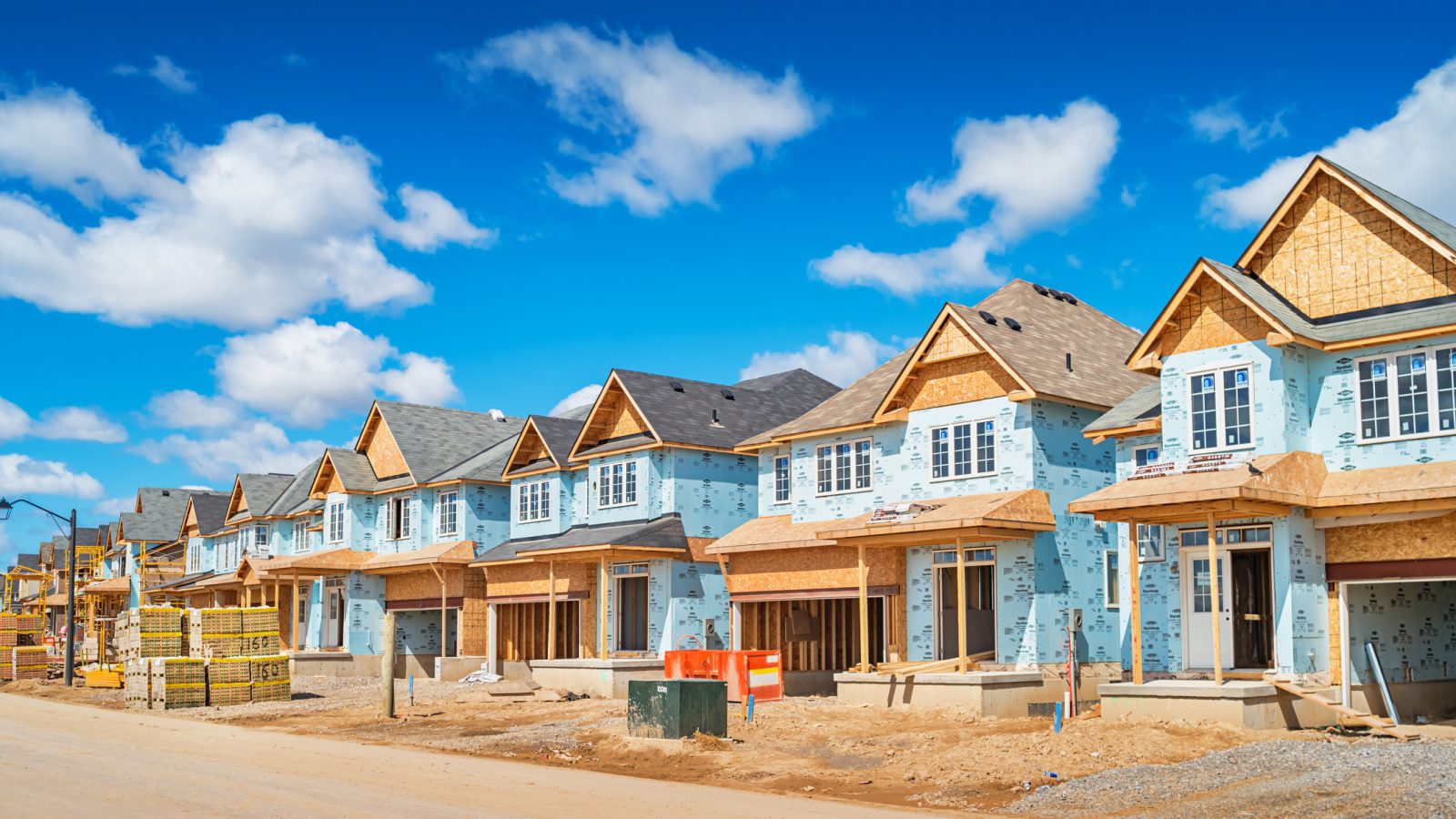Tax Planning & Preparation
Understanding the GST/HST New Housing Rebate: What You Need to Know
September 2, 2025

Purchasing or constructing a new home is a major financial commitment, one that’s often accompanied by surprise costs, including a substantial amount of Goods and Services Tax (GST) or Harmonized Sales Tax (HST). For many buyers, this tax can add tens of thousands of dollars to the total price of their home.
But here’s the good news: you may be entitled to a rebate that could significantly offset these costs.
Whether you’re a:
- First-time buyer hoping to get on the property ladder,
- Owner-builder who took on the project of creating your dream home, or
- Investor purchasing a new rental property,
there are tailored rebate programs available to help you recover part of the tax you paid.
Understanding how these rebates work, who qualifies, and how to apply ensures you don’t leave money on the table. With housing affordability more important than ever, every dollar saved counts.
This guide breaks down the essentials so you can confidently claim the rebate you’re entitled to and keep your homeownership journey as cost-effective as possible.
What Is the HST New Housing Rebate?
The HST New Housing Rebate is a government program designed to ease the tax burden on Canadians purchasing or constructing a new home or undertaking a major renovation. It allows eligible individuals to recover a portion of the Harmonized Sales Tax (HST) they paid, provided the home will be used as their primary place of residence.
This rebate applies to both:
- The federal portion of the HST (5%), and
- The provincial portion (8% in Ontario),
making it one of the most important and impactful tax relief opportunities for new homeowners in Ontario and other HST-participating provinces.
Applicable Scenarios:
You may qualify if you:
- Buy a newly built home directly from a builder
- Build your own home (as an owner-builder)
- Substantially renovate an existing home (90% or more of interior)
- Convert a non-residential property into a residential home
- Purchase a share in a cooperative housing project
Why It Matters
The HST rebate can significantly reduce your closing or construction costs, sometimes by tens of thousands of dollars. In a challenging housing market where affordability is key, this rebate helps make homeownership more accessible for Canadians.
However, eligibility depends on several factors including property value, intent of use, and timing, so it’s important to understand the rules and file within the required deadlines.
Who Can Claim the HST New Housing Rebate?
The HST New Housing Rebate is designed to benefit individuals who are either purchasing, building, or substantially renovating a home for personal use. There are two main groups who may qualify:
Homebuyers
You may be eligible for the rebate if you meet all of the following criteria:
- You purchased a newly built home (or a substantially renovated one) directly from a builder who charged HST on the sale.
- You acquired a share in a co-operative housing project, giving you the right to occupy a unit as your principal residence.
- The home will be used as your primary place of residence – either for yourself or an immediate family member (such as a spouse, parent, or child).
This applies to various types of homes, including detached houses, semi-detached homes, townhomes, and condominiums.
Note: If you purchase the home with the intention to rent it out instead of living in it, you must apply for the New Residential Rental Property (NRRP) Rebate, not the homeowner version.
Owner-Builders
If you didn’t purchase from a builder but instead constructed or substantially renovated a home yourself, you may be eligible for the Owner-Built Home Rebate. This includes:
- Building a brand-new home on land you own or lease.
- Renovating an existing home so thoroughly that 90% or more of the interior is new (flooring, drywall, plumbing, cabinetry, etc.).
- Converting a non-residential property (like a church or warehouse) into a residential home.
To qualify, the property must still be intended for your personal use as a primary residence, not for resale or investment purposes.
Key Requirement: Primary Residence
In all cases, the central requirement is that the home is meant to serve as your primary place of residence, not a secondary or seasonal property. You may be asked to demonstrate this intent through documentation (driver’s license address, utility bills, etc.).
What Types of Properties Qualify?
The rebate covers a wide range of residential property types, including:
- Detached and semi-detached homes
- Townhouses and condominiums
- Modular and mobile homes
- Substantially renovated homes (where 90% or more of the interior has been redone)
- Non-residential buildings converted into residential use
How Much Is the Rebate?
| Portion | Maximum Rebate | Eligibility Threshold | Phase-Out Details |
| Federal | $6,300 | Full rebate ≤ $350,000 | Phased out from $350K to $450K (none above $450K) |
| Ontario | $24,000 | Full rebate ≤ $350,000 | Not phased out – remains even above $450K if criteria are met |
Note: If your home is priced at $450,000 or more, you will not qualify for the federal portion, but you may still receive the Ontario rebate.
What About Rental Properties?
If you’re an investor or landlord purchasing or constructing a new residential property for rental purposes, you’re not eligible for the standard HST New Housing Rebate (which is strictly for owner-occupied homes). Instead, you may qualify for the New Residential Rental Property (NRRP) Rebate, a separate program designed to provide HST relief specifically to property owners who plan to rent their units to tenants.
New Residential Rental Property (NRRP) Rebate
This rebate is available in the following situations:
- You purchase a newly constructed or substantially renovated property from a builder and plan to rent it out, not live in it.
- You construct or substantially renovate a home yourself (as an owner-builder) and intend to lease it.
Eligibility Requirements
To qualify for the NRRP rebate:
- The property must be intended for long-term rental (not short-term or Airbnb-style accommodations).
- You must have a signed lease agreement with a tenant that covers at least 12 months.
- The property must be used as a primary place of residence for the tenant.
- You must apply for the rebate within two years of the closing date or the date on which you first make the property available for rent.
Why This Matters
Unlike the personal-use housing rebate, which reduces upfront costs at closing (especially if claimed through the builder), the NRRP rebate is often claimed after the transaction is complete and you’ve established tenancy. This means landlords should be prepared to pay the full HST upfront and apply for the rebate later, once all eligibility criteria are satisfied.
Tip:
Be sure to keep a full paper trail, including:
- The signed lease
- Proof of tenant occupancy
- Invoices and contracts related to the purchase or construction
If you’re investing in rental property and want to maximize your tax efficiency, applying for the NRRP rebate can help you recover a portion of your initial HST costs – making your investment more profitable from day one.
Don’t Miss the Filing Deadline
Timing matters! Your rebate application must be submitted:
- Within 2 years of the closing date or occupancy, whichever comes first
- Late filing = lost rebate
New! First-Time Homebuyer’s GST/HST Rebate (Announced June 2025)
As of June 5, 2025, under Bill C-4, a new rebate is available for first-time homebuyers:
- Up to $50,000 rebate
- Applies to homes priced between $750,000 and $1.5 million
- Aimed at improving affordability for middle-income families
More details will be made available as implementation progresses.
CRA Forms and Resources
- RC4028 – GST/HST New Housing Rebate Guide
- GST190 – Application for Rebate
- GST191-WS – Worksheet for Owner-Built Homes
- CRA Guide to New Housing Rebates
Need Help Claiming Your Rebate?
Navigating the ins and outs of GST/HST rebates can be complex, but you don’t have to do it alone. Whether you’re a homebuyer, a builder, or an investor, our tax professionals can help ensure you claim everything you’re entitled to.
Contact us today to get started and keep more money in your pocket during your next move.



